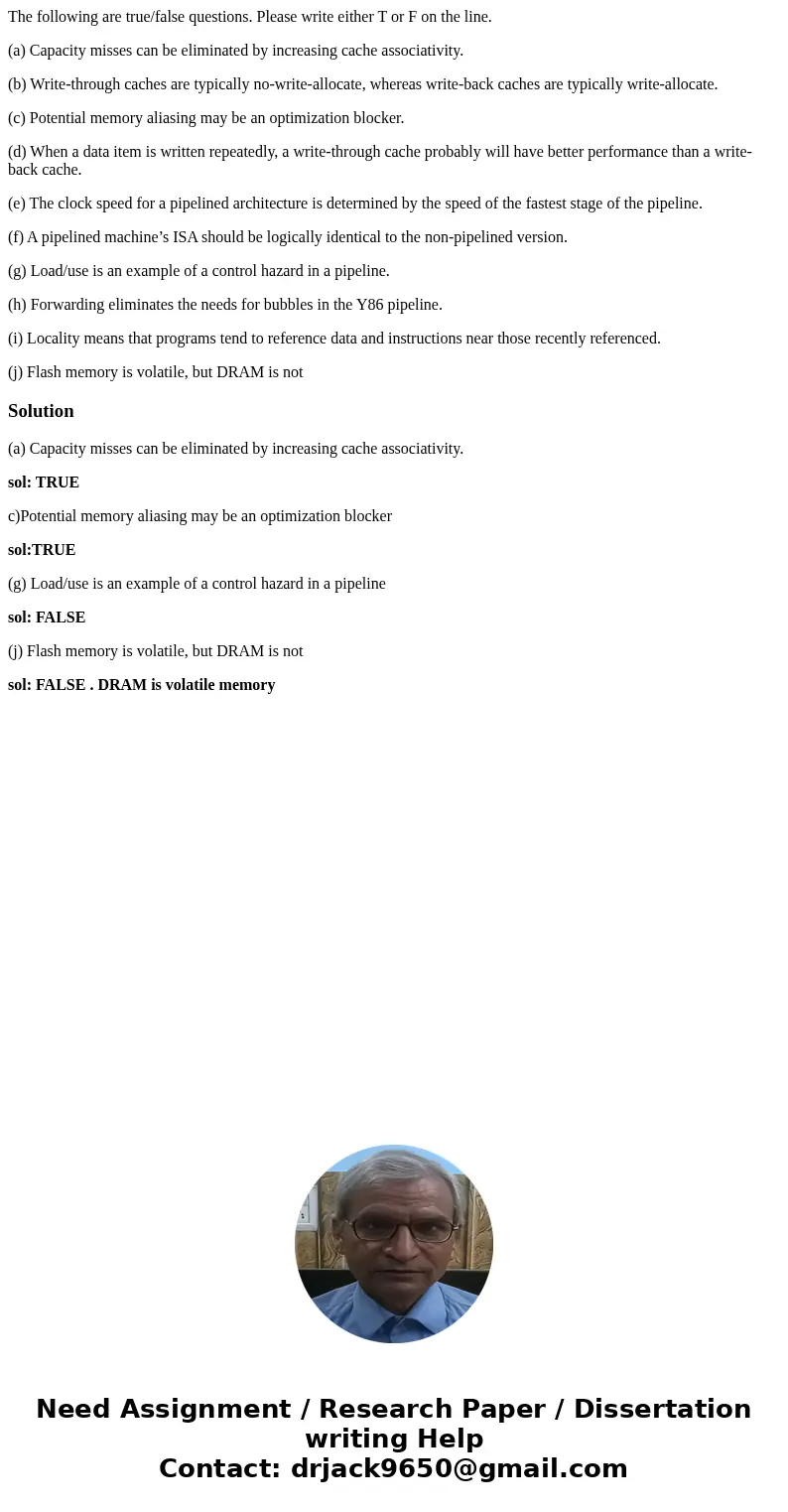The following are truefalse questions Please write either T
The following are true/false questions. Please write either T or F on the line.
(a) Capacity misses can be eliminated by increasing cache associativity.
(b) Write-through caches are typically no-write-allocate, whereas write-back caches are typically write-allocate.
(c) Potential memory aliasing may be an optimization blocker.
(d) When a data item is written repeatedly, a write-through cache probably will have better performance than a write-back cache.
(e) The clock speed for a pipelined architecture is determined by the speed of the fastest stage of the pipeline.
(f) A pipelined machine’s ISA should be logically identical to the non-pipelined version.
(g) Load/use is an example of a control hazard in a pipeline.
(h) Forwarding eliminates the needs for bubbles in the Y86 pipeline.
(i) Locality means that programs tend to reference data and instructions near those recently referenced.
(j) Flash memory is volatile, but DRAM is not
Solution
(a) Capacity misses can be eliminated by increasing cache associativity.
sol: TRUE
c)Potential memory aliasing may be an optimization blocker
sol:TRUE
(g) Load/use is an example of a control hazard in a pipeline
sol: FALSE
(j) Flash memory is volatile, but DRAM is not
sol: FALSE . DRAM is volatile memory

 Homework Sourse
Homework Sourse